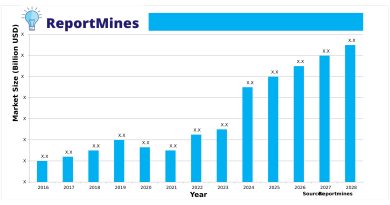Data Breaches and Violations Among Healthcare Providers
In recent times, the healthcare sector has experienced several data violations with increasing cyberattacks. There is a huge value attached to the healthcare industry, making it the target of cyberattacks. Information stolen has ranged from house address to date of birth including other sensitive information.
The stolen data is used to create a fake face or impersonate a person. Healthcare providers are often forced to part with cash in fraudulent schemes. Patients whose confidential healthcare data are stolen often find themselves defenseless to clinical frauds. Their data can also be used to perpetrate financial fraud.
Let us examine the various data breaches and violations in recent times and ways to stay compliant.
Data Breaches and Violations
Most healthcare-related data violations are a result of hacking. It could be a result of some loose ends in IT-related security as shown in recent studies. There are more than 500 official records of healthcare data breaches as submitted to the Office for Civil Rights (OCR). This office is a subsidiary of the US Department of Health and Human Services.
The first instances of healthcare data breaches began to be compiled and published a decade ago. The department of health and human services office for civil rights put out healthcare data violation disclosure on its website recently.
It is also reported that a high number of healthcare providers were found in violation of HIPAA. Estimated figures are at about 47%. This figure suggests it is fairly common to have healthcare professionals and medical centers falling short of the HIPAA regulations time and again.
The question to ask would be how can healthcare professionals avoid HIPAA violations? How can you stay HIPAA compliant in the future?
Personal Health Information (PHI) under US law refers to the private health status of any individual covered by healthcare centers. Some common breaches occur when PHI is mishandled. The fines for this mismanagement can be very severe. Usually, the fine is $25,000 for each violation category.
The financial penalty associated with violating HIPAA rules is most times only uncovered after a period of time. Sometimes it could take years of consistent violation. This is as a result of failing to safeguard PHI. And persisting not to conduct consistent compliance reviews. Eventually when uncovered, the penalty accumulated results in very large fines.
In recent times, the biggest healthcare data breach cost over $9 million per incident. This is according to a study by IBM between May 2020 to March 2021. Healthcare providers have been known to be among the most common data breaches. Data stolen has ranged from passwords, healthcare services, email addresses, etc.
HIPAA Compliance Act
According to the official government records on HIPAA, the Health Insurance Portability and Accountability Act was created in 1996. It offers legislative coverage to areas of concern such as:
- Healthcare coverage for employees
- Medical administration
- Prevent wastage of health resources
- Prevent the perpetuation of fraudulent activity
- Protect sensitive medical data
- Improve patients’ privacy of health reports
Entities and business associates who are in one form or the order providing health services must comply with HIPAA. Part of this compliance means operating a non-disclosure policy on personal health information.
How to Stay HIPAA Compliant
Given technological advancements and refined cyberattack strategies, it is essential to regularly check your network for any suspicious activities. According to government regulations, auditing should be done annually for security evaluation.
On work systems, periodic changes to Windows permission allow you to find who can access sensitive health records. You should be able to monitor what personnel has access to PHI.
Healthcare providers and medical practitioners can avoid data breaches by abiding by some extra measures. These are:
1. Incident Response Plan (IRP)
Deploying an IRP is crucial to prevent personal medical records from being stolen. If you suspect a data breach, an IRP can help stop data theft. It can repair your systems so that there is no repeat of such incidents.
An IRP is a security tool that can be used to eliminate cyber threats. The following metrics are factors that determine risk assessment measures;
- The extent to which the PHI has been left unprotected and what risk could accrue in that space of time
- The details of PHI and the chances of identifying it
- Discovering unauthorized personnel who leaked sensitive information to third parties.
Quick execution of IRP can help curtail negative press coverage and reduce data breach impact. These measures will potentially temper the weight of the fines.
2. Auditing and Reports System
In compliance with HIPAA, auditing systems generate reports of applications. These events are measured in real-time. There are data analytic systems that can prove effective in gathering intelligence and strengthening your network.
Several of these auditing systems can help you analyze and track anomalies. You’d be able to understand perfectly how information is trafficked in and around your healthcare environs.
3. Do Periodic Testings
Cyber hackers are always on the alert for loopholes in your defense system. You can engage the services of a security firm to run a professional test.
Run periodic tests on your systems to determine their security strength. You can do a penetration test to find the vulnerability levels and the strength of your organization’s security network.
4. Train Personnel on Data Security
Technology might not be 100% enough. Your staff needs to be adequately trained to understand their responsibility for safeguarding sensitive data. Your staff should see themselves as stakeholders. In this position, they will be alert enough not to divulge sensitive data.
The best cybercrime detection gadgets will be of no use if your staff can be easily swayed to divulge sensitive information on social media.
Conclusion
Data breaches from healthcare providers happen from unguided loopholes. It can be both stressful and expensive to have data breaches because of the repercussions it has to the company and its clients.
It can be monitored and avoided if health professionals adopt more cyber security measures. Compliance with HIPAA regulations will also help keep your organization safe. It can help curtail the loss of sensitive information and stop identity and data theft.




